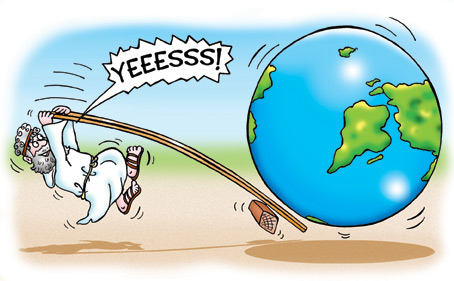
There is a major misconception that only people with titles are leaders, so if you don’t have a title e.g. CEO, General, Pastor, Professor, then you are not a leader. A lot of leadership that goes on in the world is done by people who have no formal leadership titles, but yet are bringing about change in their communities, cities and countries.
John Maxwell believes that leadership is influence and the Oxford Dictionary defines influence as the ability to affect someone’s beliefs and actions. Barack Obama won the 2008 US national elections courtesy of a number of factors, but influence was a critical factor. Before he secured the title role of President, he was a lowly ranked junior senator from Chicago. All the other contending senators in the presidential race such as John McCain, John Edwards and Hilary Clinton were ahead of him in terms of seniority. He was not as powerful as they were but became more influential than all of them as the race progressed.
Obama’s speech as the Illinois State Senator at the Democratic National Convention in 2004 put him on the political map and he was able to leverage the influence he gained after the DNC convention to successfully win the US senate seat and eventually the US presidency.
He was able to connect with the masses who desired political change from the Bush era and presented himself as the best candidate to bring about that change in the government. He maximised social media technologies to increase his influence with the electorate and empowered enthusiastic supporters to spread his change message virally. They helped him reach their sceptical family members, friends and colleagues who were unsure of his leadership credentials.
Archimedes said “give me a lever long enough and a fulcrum on which to place it, and I shall move the world”. Using his metaphor, I will argue that effective leadership is the lever that moves the world and influence is the fulcrum which sustains it. Influence can be used to bring about positive change or abused with detrimental consequences. The leader has the responsibility to maximise the influence invested in him for the greater good of his followers.
Influence is hard to gain but easy to lose because it is based on the currency of trust. Hence the moment a leader loses influence; his leadership credibility and authority starts to wane.

3 replies on “Leveraging Influence”
You clarified my thoughts completely. Half of the time leaders can overrate themselves because of their titles and so forget the ingredients that keeps their followers interested: Trust and Influence.
Most of the time what you will find is that someone with a great sphere of influence who is bringing about change will be trusted more than someone who is more qualified and appears to be”better equipped”.
Thanks for this.
Interesting read, it is true that once you lose the ability to influence then you lose the ability to bring change.
Ok, got it. So, is influence really that hard to gain? Speak the right words and you’ll catch someone’s attention… a.k.a the first step to influencing the person.
Before I continue, I must commend you for noting the greatness that came out of the State of Illinois, and still continues to come out…much love to Chicago! 🙂
Influence is also about knowing the right people to reach out to, huh? No point wasting time on people that won’t enable your vision, right?
I definitely agree that a title is not necessary to be influential. Knowing the right people, saying the right thing, however… now that’s influential.